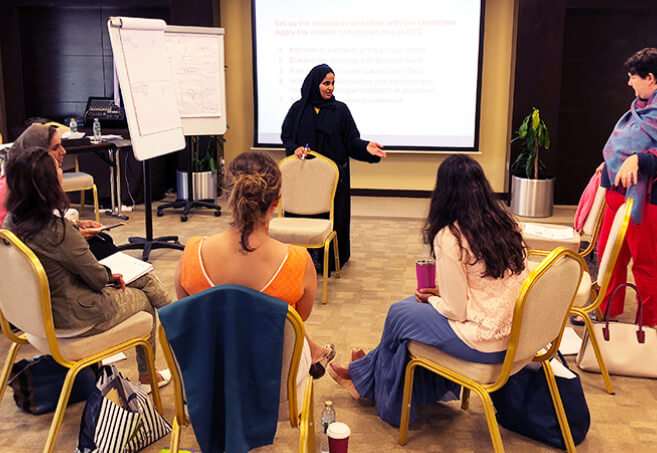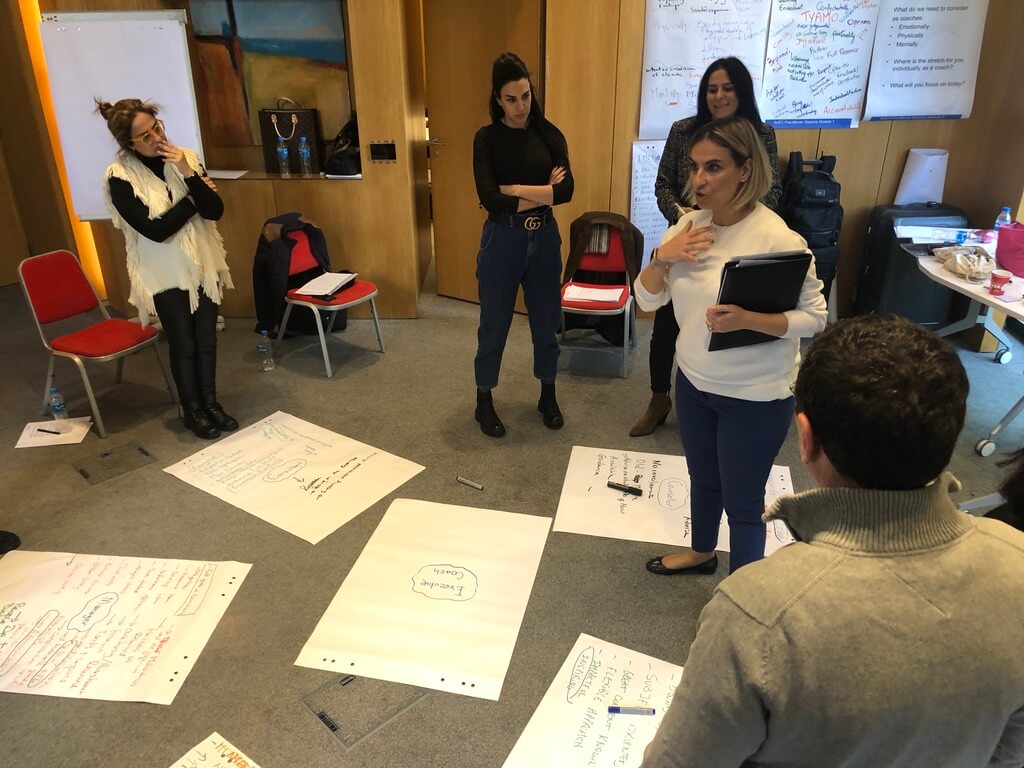Many of us have heard of the term growth mindset, but how many know it well enough to apply its principles in real-life situations? Individuals who have truly embraced a growth mindset believe that all skills and intelligence can be harnessed with time, effort, and resilience.
A growth mindset relates to one’s disposition toward fear, uncertainty, and failure. It is a quality employers look for when hiring as it shows the applicant’s inclination to innovate, collaborate, and be resourceful. It is a skill in itself that can be taught and practised.
At Kompass Consultancy, we help leaders in senior management roles adopt a growth mindset through executive coaching programmes in Dubai and Abu Dhabi. As certified executive coaches, our goal is to help them refine and supplement their leadership skills so that they can drive their respective teams and organisations on the right path to success.
Before diving into tips on how to develop a growth mindset, we must first understand how it’s different from a fixed mindset. This way, we know how to spot behaviors that go against having a growth mindset.
Growth Mindset vs. Fixed Mindset
A growth mindset is an ideology that emphasises one’s willingness to learn and acquire abilities rather than being born with them. A fixed mindset is the opposite. It is the notion of either being naturally talented or not.
In business, a growth mindset is a leadership quality that enables organisations to succeed with a forward-thinking approach. It is a leader’s ability to inspire individuals and teams to learn from setbacks and use their experiences to improve or create new strategies. A growth mindset could be what distinguishes an organisation from surviving or thriving in a fast-evolving professional landscape. It could also be what sets leaders apart from managers.
A growth mindset is preferable to a fixed mindset because it gives every individual equal opportunities for success. It reinforces the value of hard work and determination in the face of difficulty versus the self-limiting belief that one is just incapable or lacking a certain quality.
At this point, a fixed mindset may sound unappealing, but it still has its advantages. A person with a fixed mindset generally errs on the side of caution and takes a conservative approach to business or decision-making. However, we mustn’t discount the fact that they can exhibit superior expertise in skills they’re inherently good at.
Having a growth mindset means expanding what’s good about a fixed mindset, such as focus, mastery, and prudence, and using these for strategic thinking. To illustrate this point further, it’s having factual data on your hands but still choosing to ask your team insightful questions so everyone can be part of the solution.

7 Tips on How to Develop a Growth Mindset
– Perform a Self-Assessment
A growth mindset is about having the desire for continuous learning and improvement. You must be able to assess yourself and pinpoint qualities or beliefs that are holding you back. For instance, reflect on how you take criticism. Do you find yourself reacting, blaming others, or simply concluding, “That’s just how I am,” or do you respond by asking, “How could I have done better?” Answering yes to the first question would indicate a part of you is still tied to a fixed mindset, and it is something you can improve or grow from.
– Spark Purpose
A growth mindset is not just something you learn overnight. It takes constant practise and awareness to apply it in daily life. Sometimes, it could be hard to proceed with a growth mindset because this shift in perspective goes against the habits and behaviours we’re familiar with. We encourage you to spark purpose within yourself so that you can remind yourself why you wanted to develop a growth mindset in the first place. This deep-seated purpose will enable you to push through, even in stressful or high-pressure situations.
– Reframe Your Perception or Fear of Failure
Failure is inevitable, but it doesn’t necessarily ruin your chances for success. Part of having a growth mindset involves reframing your perception or fear of failure. Instead of seeing it as an obstacle, look at it as a checkpoint where you can evaluate what worked out, what didn’t, and what you can do better next time.
– Welcome Challenges
Having a growth mindset is accepting that life will always be challenging, but we can be thankful for having better problems or having the experience to equip us in less ideal situations. By welcoming challenges and viewing them as an opportunity to learn and overcome something difficult, you also open yourself up to greater and more fruitful possibilities. Whatever happens, you will have gained a lesson for future growth.
– Refrain From Unjust Comparisons
As the saying goes, “Comparison is the thief of joy.” We all have our own growth timelines, so we must respect our own journey and refrain from unjustly comparing ourselves to other people. Instead of envying people who seem to have it all figured out, we could take inspiration and learn from their success. A growth mindset doesn’t stem from envy but rather from curiosity. We need to be able to define success on our own terms so that we don’t seek anyone’s approval or validation.
– Understand Personal Limitations
Part of developing a growth mindset is understanding that we all have personal limitations, whether physical, financial, intellectual, or other. We can’t do everything on our own, and we can’t be great at everything. Some tasks require more time and effort to accomplish, and sometimes, we need to ask for help. Having a growth mindset takes humility to admit one’s limitations, not to be taken as a weakness or vulnerability, but rather as an opportunity to collaborate.
– Celebrate Personal and Team Achievements
Having a growth mindset involves giving credit where it is due. It’s being genuinely happy for your peers’ success and allowing their success to motivate you to keep going after your goals. It’s easy to sell ourselves short when we see someone achieve far more than we do, and these are times we need to remind ourselves to strive for progress over perfection. Celebrate personal wins no matter how small as much as you celebrate other people. Take ownership and accountability in your personal growth and allow yourself to grow alongside a high-performing team.
Final Thoughts on How to Develop a Growth Mindset
A growth mindset strengthens the value of hard work and dedication in achieving goals. It is an ideology that makes success tangible for anyone willing to put in the effort and persevere over time. Developing a growth mindset takes constant practise. It’s about taking every opportunity to learn and adapt skills, techniques, abilities, or intelligence that bolsters personal and professional growth.
At Kompass Consultancy, we provide leaders in senior management roles with agile growth frameworks that cater to their vision of success. We offer executive coaching programmes to help clarify leadership styles and enrich leadership skills.







